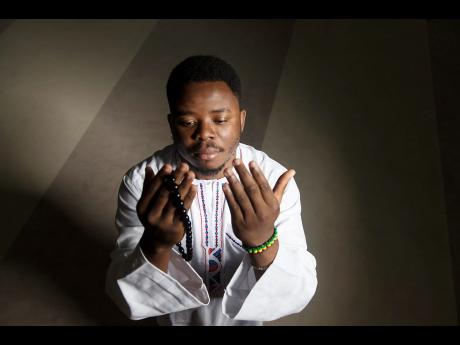Understanding Islam - Part I - Fundamental beliefs and goals
Islam is a monotheistic religion founded by the Prophet Muhammad in the 7th century CE in Arabia. The word Islam means to submit to Allah in his oneness, and the faith is underpinned by five pillars which believers must uphold.
These pillars are the Testimony of Faith, The prayer, The obligatory Charity (Zakaah), The Fast of Ramadan (Siyaam) and The Pilgrimage (Hajj). The Testimony of Faith is the most important of the pillars. It is the key with which a believer becomes a Muslim, and means that none has the right to be worshipped but Allah, and that the Prophet Muhammad is his slave and messenger.
Within the Testimony of Faith itself, there are creedal acts of worship called the six Pillars of Faith (Imam). These pillars are the belief in Allah as the only one to be worshipped; the belief that Allah created angels to worship him; the belief in Allah's books; the belief in the messengers of Allah; the belief in the Judgement Day, and the belief in predestination (Qadhaa and Qadar).
The belief in Allah is about a belief in his existence, that he has no partners, equals, or rivals. He created our existence. Only that which he wishes come to pass. Allah's angels also exist. No one knows their exact numbers, except Allah, and he has created them to worship him. They do not share Allah's peculiar characteristics, and they are not his children. They were created to perform certain tasks. Attendant to the belief in Allah is the belief in his divine books, which were revealed to his messengers to be relayed to us.
Sacred Scriptures
These books call people to the oneness of Allah, and some of them are The Suhurf (Sacred Scriptures of Abraham); The Tawraah (Torah), the scared book that was revealed to the Prophet Moses; The Zaboor (Psalms), the sacred book that was revealed to the Prophet David; The Injeel (Gospel), the sacred book that was revealed to the Prophet Jesus; and the The Noble Quran, the speech of Allah that the Angel Gabriel brought to Muhammad, and is regarded as the last of the divine books.
It is also believed that Allah chose messengers with specific instructions to us, to worship and obey him, to establish his religion and oneness. The first messenger was Noah, and the last was Muhammad. One of the messages revealed was that this world, as we know it, will come to an end, and everyone therein will perish. After the end, Allah will resurrect everyone, judge them, reward who did well, and send to Hell forever those who were evil, did not believe in him, and disobeyed his messengers.
Muslims believe that Allah has knowledge of things before they come into existence, and what will transpire after they become material. He has brought them into existence in accordance with his knowledge and judgement. This belief should have people with a clear conscience and peace of mind. It engenders the search for knowledge, and increases people's dependence upon Allah, and removes fear.
In addition to the five pillars, there are six fundamental goals of Islam, the preservation of the religion of Islam, life, wealth, the mind, lineage and honour. According to Dr Adbul-Rahman AlSheha, in his book, The Key to Understanding Islam, Islam is a religion through which people find spiritual contentment. It is a religion of mercy and compassion, that has no confusion or ambiguity associated with it, is for everybody, and which wipes away all previous sins.

